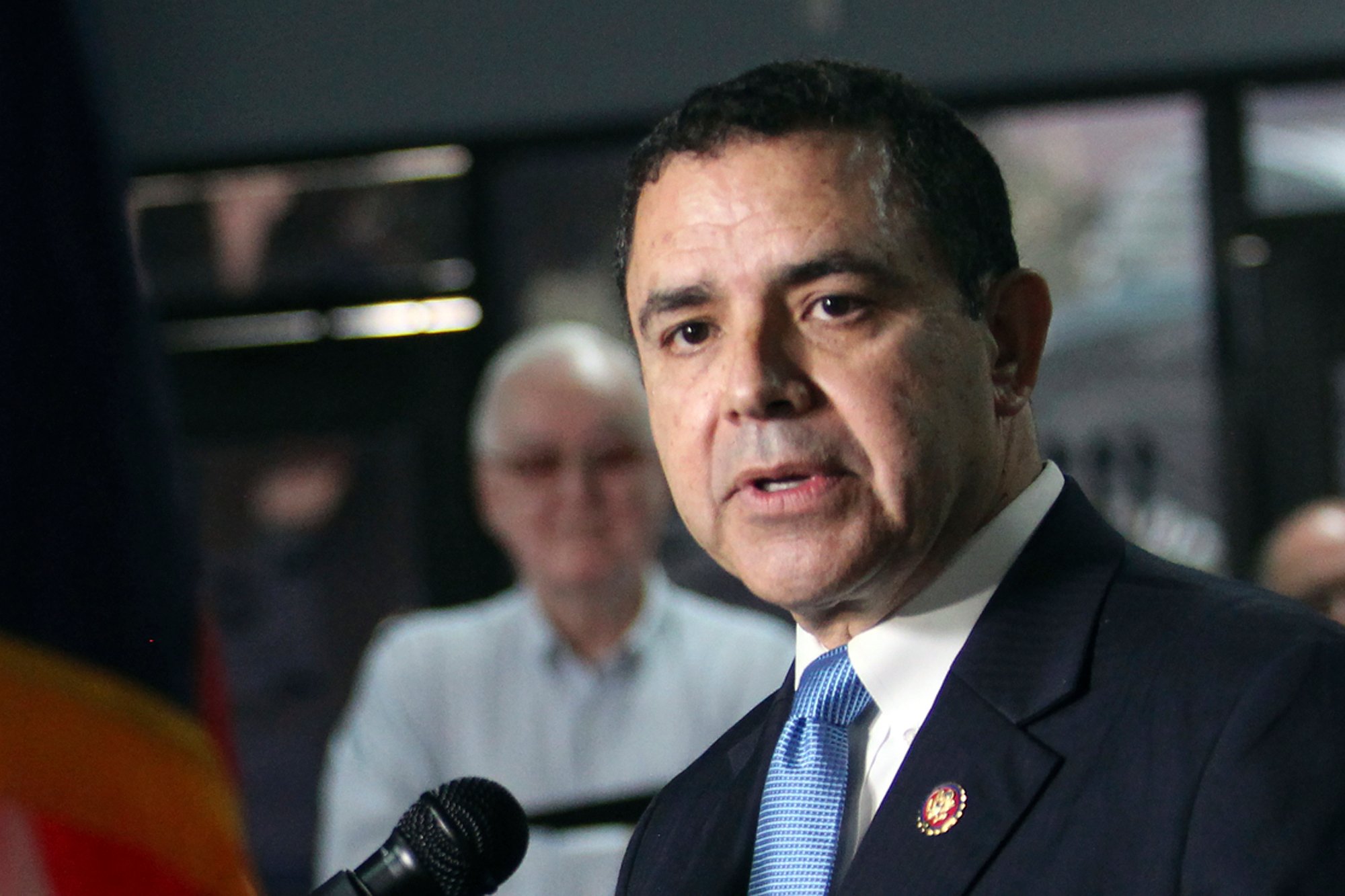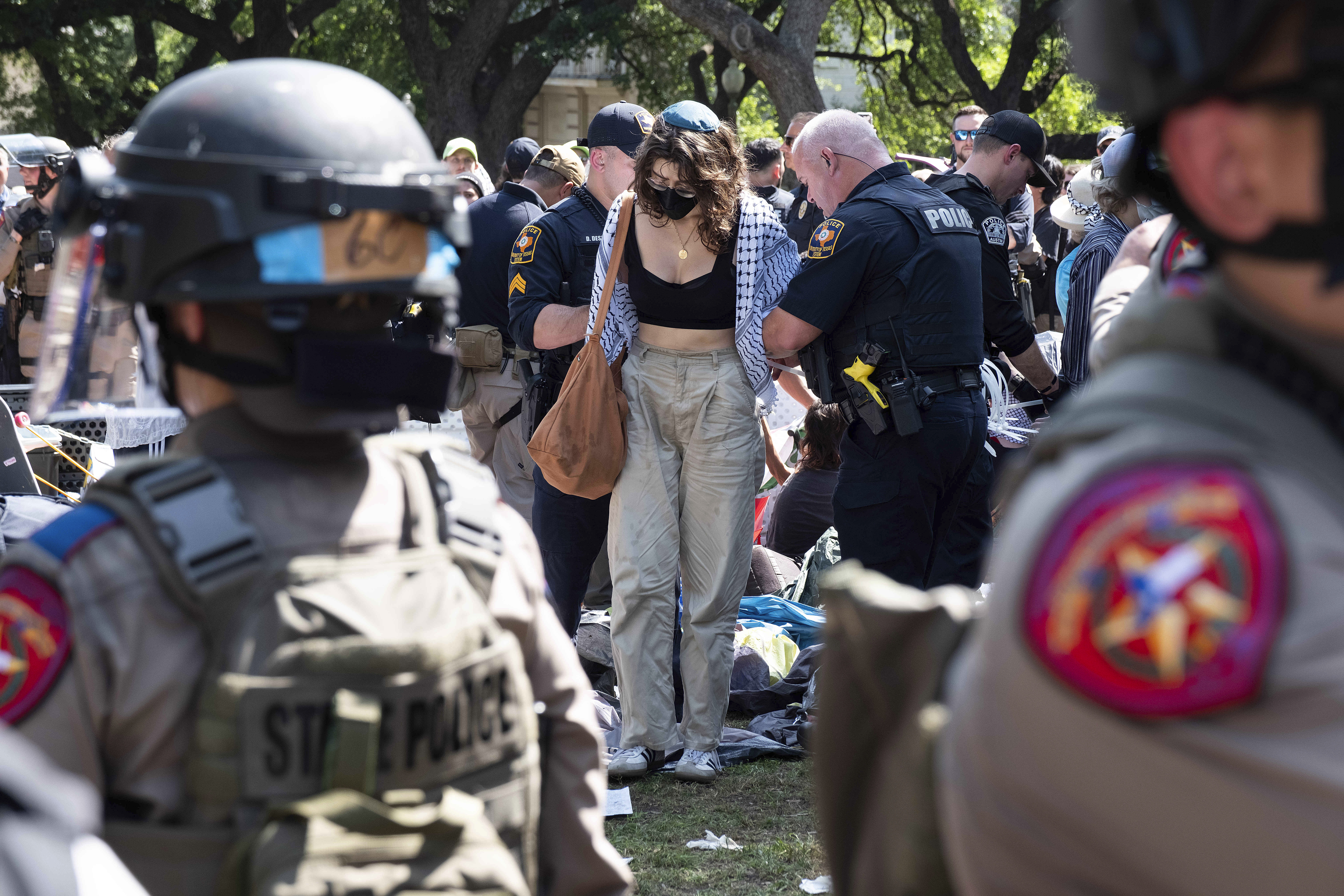ustxtxb_obs_1959_08_01_50_00001-00000_000.pdf
Page 7
Over The Transom AUSTIN A night-prowling operation by unknown legislators, a scoop by the AP, grumbling among reporters, particularly those of the rival wire service, UPI, rumors of fingerprint dust’ and police investigations all this kept the Texas House of Representatives occupied during the three days last week that the Senate debated the general tax bill. As pieced together by Observer reporters, the sequence of events ran like this: House members have become increasingly anxious to break the wall of secrecy surrounding the joint conference report on the general appropriations bill. Appropriations chairman Bill Heatly has refused to release any information about the bill. Especially concerned were liberal legislators who suspected Heatly’s committee had made severe cuts in appropriations for higher education. Last weekend, four legislators, thought to be liberals, determined to acquire a copy of the two-inch thick appropriation bill locked in a House conference room. One of the four slithered over the transom and obtained a copy or copies. A copy was given to Frank Manitzas, member of the Associated Press Austin bureau, who promptly broke the story in Monday morning editions across the state. United Press staffers announced to all concerned that they were very unhappy at the favoritism shown by the culprits. A member touted the UPI on the theory that the story had been “leaked” by Heatly. UPI became very mad at Heatly until, discovering the truth, they became Very mad at the liberals. Other House members, conservative and liberal, overjoyed at breaking the secrecy on the bill, registered protests when they read accounts of budgetary cuts in expected sums for hospitals and colleges in their districts. Rumors circulated that the Department of Public Safety was fingerprinting the transom. bserver We will serve no group or party but will hew hard to the truth as we find it and the right as we see it. 03,410 \(\\–6 09,, independent-Liberal Weekly Newspaper The one great rule of composition is to speak the truth. THOREAU The T Vol. 51 TEXAS, AIIGTJST 1, 1959 10c per copy No. 17 Tax Bill Passes, Legislators Packing Many Sales Taxes, Pipeline Tax Okayed ‘Rotten’ AUSTIN In a lackadaisical mood that contrasted sharply with the tense drama of similar tax showdowns through seven months of debate, the House of Representatives approved a $185 million tax bill as amended by the Senate and dispatched it to the Governor. The bill contains a $16 million levy on the severance beneficiaries of natural gas production. The end of the tumultuous tax controversy that had divided the House into two tight factions came ironically with the coalitions crumbled and both sides asserting the other side won. On the last key vote, whether or not to concur in the Senate amendments, Rep. Tom James, Dallas conservative, and Rep. Bob Eckhardt, Houston liberal, voted “aye,” while Bob Hughes, Dallas conservative, and Dean Johnston, Houston liberal, voted “no.” Thus had the two battalions plunged into a sea of individuals at the finish. The motion to concur carried, 85-54, and was then reconsidered and passed in a near carnival atmosphere by a vote of 115-25, sufficient to meet the constitutional two-thirds rule to put tax bills into effect without a 90-day delay. The undisciplined windup resulted from some anxious soulsearching on the part of liberals at a caucus after passage of the Senate version. The complicated and at times confused Senate debate had left pipeline taxers in doubt as to whether or not the severance beneficiary clause was constitutional as it emerged from the Senate rewriting. Following the analysis made by Eckhardt, bill was constitutionally strongest it was weakest at the time the Senate substitute was originally offered by Senator Wardlow Lane and approved by the Senate state bill had been materially strengthened by floor amendments authored by Sen. Crawford Martin; ate amendments and asked for a conference committee, the bill would be worked over by conferees appointed by Ben Ramsey and Waggoner Carra development that would not, suspected the liberals, result in the strengthening of the bill’s constitutionality. On the basis of these conclu AUSTIN After an exhausting daylong debate that featured three hours of controversy over the constitutionality of the severance beneficiary gas pipeline tax, the Senate Wednesday passed for the first time in six tries a general tax bill that contained the pipeline levy. As in the House, the bill that achieved final passage was authored by a heretofore unrelenting foe of the severance beneficiary tax. Sen. Wardlow Lane, veteran conservative and member of Ben Ramsey’s “team,” sponsored the Senate bill, while Rep. Will Ehrle, Childress conservative, authored the pipeline sions, liberals decided to make no organized effort to reject the Senate amendments in the House, permitting the bill to become law, with those wishing to do so voting “no.” Explaining his interpretation of the final draft of the pipeline tax, Eckhardt said, “The bill is not as well protected against court attack as it could be. It is not as strong constitutionally as the bill the House approved. But it is far stronger than Lane’s original bill and it has a fair chance, I think, to run the gauntlet up to the Supreme Court. It must carry a tremendous burden, however, for the non-severability clause that Lane inserted means the whole bill will fall if any minute part of tax included in the House version. The House bill was pronounced “adequate” as to its constitutionality feature by both contending factions, but, as substituted by the Senate, the Lane version was called “doubtful” by pipeline tax proponents who have backed Governor Daniel’s recommendations. Lane repeatedly told his colleagues his only concern was in making the severance tax “as constitutional as possible. “I heard it stated,” said Lane, “and I read in the paper, that the severance beneficiary tax has been the thing that has held this whole question up. If I’d heard about that three months ago, lid have been ready to vote for this severance beneficiary then. If a person defended the long lines, he wouldn’t get a vote; he’d lose lots of votes.” Lane objected to stories that he and Hardeman “had put a blooper in this bill” via the ethanemethane amendment suggested by ple who say we are trying to saboteur this bill are judging other people by their own inner self,” Lane said. Lane repeatedly asserted he was “trying to do as little as possible to the bill, because I don’t SEN. CRAWFORD MARTIN it is ruled unconstitutional, even if that part concerns procedure and does not directly concern the principle of severance beneficiary taxation. In any event, it is the best bill we could get, given the circumstances. It could only get worse going to a conference committee appointed by Ramsey and Carr.” Conservatives generally regarded the severance beneficiary pro vision as unconstitutional. Rep. Frates Seeligson of San Antonio said he thought the bill was “clearly unconstitutional.” Rep. Sam Bass, Freeport, agreed. Both have been staunch opponents of the pipeline levy during the long controversy. want to be known as a saboteur.” He struck from the bill the phrase “It is the intent of the legislature that” and left the remaining statement, “the tax herein shall not be the liability of the producers.” Is It Valid? Sen. Grady Hazlewood, Amarillo, asked Lane if he would object to exempting smelters and utilities which buy gas. Lane said that obviously would make the bill unconstitutional. “If we could only tax the pipelines, we could AUSTIN Why did the Senate suddenly buckle this week and accept a severance-beneficiary tax of 1.5 percent on the gas pipelines? This had been the issue which divided the House and Senate for the three special sessions; it underlay the regular session’s impasse on taxes. Gradual acceptance increased among the majority of the legislature that between 60 percent and 75 percent of the needed $185 million for the next two years would come from selective sales taxes. Gov. Daniel also demanded a change in the franchise tax to cause it to fall more heavily on out-of-state corporations doing business in Texas, and the pipeline tax rather than a gas production tax increase. The situation “broke” when the independent oilmen organized into Texas Independent Producers and Royalty Owners’ Assn. sent out a memo which accused the majors of “an exercise in duplicity.” The House had sent over a gasless tax bill; the Senate added a production tax increase; TIPRO concluded they had been had. On July 18, Harry C. Jones, president of TIPRO, sent his members a memo asking, “Who will pay the gas taxpipeline companies or producers and royalty owners?” and admitting The House debate on concurrence began Thursday afternoon. Rep. Ben Glusing, Kingsville conservative, moved that the House concur in the Senate amendments. Rep. Johnston moved not to concur. The Houston liberal said the bill was “as bad as anything the Senate has ever shunted off on us. We could have bought a thing like this in May.” He said the bill was “rotten with salestaxes and should not be accepted just because it has a puny little $7.5 million gas tax on an industry that makes millions.” A conference committee “couldn’t do any worse. I know what conference committees have done to us in the past but this is just a general sales tax, selectively admin.. lay a tax on them” Lane began; “that would retire the national debt,” finished Sen. George Moffett, Chillicothe. “You couldn’t make it constitutional, no matter what you wrote in it,” Sen. Rudolph Weinert, Seguin, a staunch opponent of the tax, contributed. As the bill emerged from the Senate committee, its terms were declared “nonseverable,” so that if any detail were held unconstitutional, the entire bill would fall. Lane substituted a clause which being “frankly appalled by the efforts of certain industry representatives” to add an increase on gas production. Meanwhile Gov. Daniel and the House liberals evidently began to strike bottom in their sounding’s in public opinion on behalf of a pipeline tax. The Senate, which voted 19-11 against the pipeline fax on a previous test, in a team play Wednesday passed the House pipeline tax. Actually the decision was manifest last week, when Speaker Waggoner Carr’s team brought forward the tax \(with Rep. Will The Senate this week only carried out this play. The Observer monitored the Senate debates carefully with an ear to tip-offs why the senators reversed their previous vote on the gas pipeline tax. Senators’ remarks which might provide intimations of answers: SEN. WILLIAM S. FLY, Victoria, indicated his continuing contempt for the pipeline tax, as he went along with the play: discussing whether the tax would be the liability of the producers, he said, “Well, that’s what the Governor wrote, and that’s what those wild-hairs over there \(in the Sen. Grady Hazlewood, Amarillo, in an ironic byplay: “Of course we’re trying to get the pipelines. That’s what we’re all \(Continued on GAS LEVY’S VALIDITY IN DOUBT Why The Switch?


